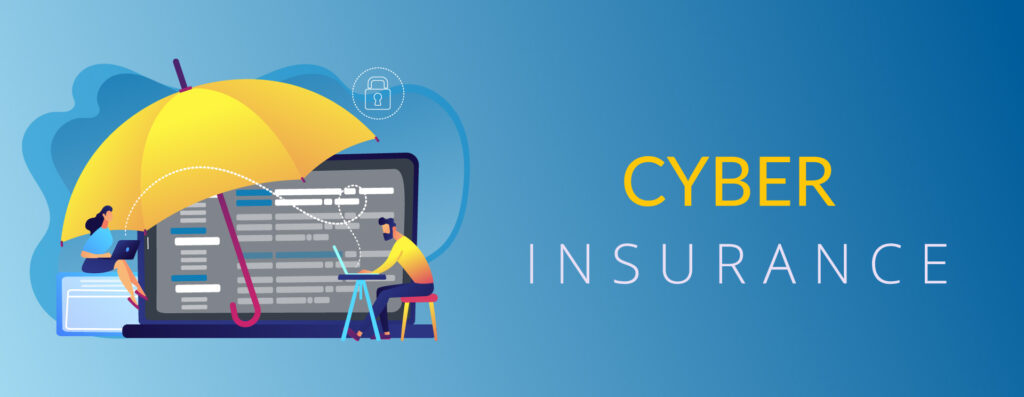
In the modern world, where digital threats are increasingly sophisticated and pervasive, businesses and individuals face significant risks online. These threats range from data breaches and ransomware attacks to identity theft and infrastructure sabotage, each carrying potentially severe financial repercussions. Cyber insurance mitigates these risks by providing financial protection and support services. In this expanded discussion, we’ll explore what cyber insurance is, its key coverage areas, and why it’s essential, including the legal and human factors that influence its effectiveness.
What is Cyber Insurance?

Cyber insurance is a specialized insurance product aimed at protecting businesses and individuals from the financial losses resulting from cyber incidents. This type of insurance is focused specifically on risks associated with digital assets, data, and information technology infrastructure, differing fundamentally from traditional insurance policies that cover physical or general liability risks.
Key Coverage Areas of Cyber Insurance
- Data Breach and Privacy Management: This covers costs related to the recovery of compromised data, as well as legal expenses arising from mandatory data breach notifications, customer or client lawsuits over privacy violations, and regulatory fines.
- Business Interruption: Provides financial compensation for the loss of income resulting from a cyber event that disrupts business operations, including downtime caused by cyber-attacks on network systems.
- Cyber Extortion: Offers protection against losses incurred from threats to release sensitive information or disrupt system operations unless a ransom is paid, which is typical in ransomware scenarios.
- Network Security Liability: Covers legal and recovery costs if someone sues the insured for failing to prevent an attack that originated from their network.
The Legal Aspect of Cyber Insurance
Regulatory Compliance: Many sectors are governed by strict data protection regulations (such as GDPR in Europe or CCPA in California), which impose hefty penalties for non-compliance. Cyber insurance can cover legal fees and financial penalties, providing vital support in navigating the complex landscape of data privacy laws.
Litigation Protection: As cyber incidents can lead to lawsuits from affected parties, cyber insurance helps cover legal defenses and settlements. This protection is crucial for maintaining financial stability while addressing legal challenges stemming from cyber incidents.
The Human Factor in Cyber Security and Insurance
Employee Training and Support: Human error is one of the most significant vulnerabilities in cyber security. Effective cyber insurance policies often provide resources for training employees on best practices for data handling and recognizing phishing attempts and other common cyber threats.
Incident Response and Crisis Management: After a cyber incident, timely and effective response is crucial. Many insurers offer services that help manage the crisis, including access to forensic experts who can identify the breach’s source, PR firms to manage communication and maintain reputation, and legal experts to address compliance issues.
Why is Cyber Insurance Essential?
Financial Risk Mitigation: The direct and indirect costs of cyber incidents—such as recovery operations, lost business, legal fees, and reputational damage—can be debilitating. Cyber insurance provides a financial safety net during these critical periods.
Comprehensive Risk Management: While robust IT security measures are essential, they cannot guarantee complete immunity against cyber threats. Cyber insurance complements these measures by covering aspects beyond immediate prevention, such as post-incident recovery and legal ramifications.
Adaptability to New Threats: As cyber threats evolve, so too must the strategies to mitigate them. Cyber insurance policies are continually updated to cover emerging risks, ensuring that coverage remains relevant as new technologies and attack methodologies develop.
Should you consider it?
Cyber insurance plays a critical role in the broader strategy of cyber risk management by providing not just financial compensation but also valuable support services that address both the legal and human aspects of cyber threats. In today’s digital age, understanding and integrating cyber insurance into risk management practices is crucial for any digital entity. This integration helps ensure comprehensive protection against the ever-evolving landscape of cyber threats, safeguarding both operational continuity and financial stability.
Why Is Cyber Insurance Important?
Compared to other, more common forms of insurance that are frequently factored into organizations’ annual budgets, cyber insurance is far newer, still much lesser-known, and becoming exponentially more relevant and important with each passing day.
For organizations of all sizes, it is quite common to have a few different forms of insurance at their disposal. A small brick-and-mortar store, for example, may consider commercial property insurance to cover their physical assets in case of theft, a fire, or vandalism. It would also be quite common for that same store to have business income insurance that will help cover expenses after experiencing an interruption in business. Finally, businesses like this one will often have general liability insurance to cover lawsuits or any other claims from a third party. These three types of insurance are so common that they are often included together in what is known as a business owner’s policy (or BOP). Unfortunately for business owners, though, cyber insurance is often not included in a BOP and, as a result, is usually deemed as an afterthought if not completely unnecessary altogether.
When looking at recent malware and data breach trends, though, it becomes abundantly clear that taking the necessary measures to prepare for a cyber-attack is becoming much less of a luxury and much more of a dire necessity. According to the 2021 Thales Data Threat Report, which surveyed 2600 cybersecurity professionals, 45% of companies based in the United States have experienced a data breach at some point in the past. While it remains true that large organizations and corporations are most frequently targeted by cybercriminals, the Thales Data Threat Report also found that well over a quarter of breaches affected small businesses.
The fact of the matter is that nearly everybody is exposed to data liability to some extent, and cyber insurance can be tremendously beneficial in the wake of a data breach. With people and companies becoming more connected than ever before, cybercrime is growing by leaps and bounds and is expected to cost $6 trillion in damages in 2021. By 2025, that figure is estimated to rise to $10.5 trillion. With the threat of cyber-attacks only growing, the need for a financial safety net is dramatically growing along with it.
What Does Cyber Insurance Cover and Who Needs It?
Due to the ever-changing cyber threat landscape, cyber insurance is quite versatile and will provide coverage and assistance to just about any organization, regardless of size or industry. Cyber insurance can provide coverage to any organization that manages sensitive information and/or has their financial information compromised, from small retail operations to hospitals and government agencies. Generally speaking, though, the basic elements of a cyber insurance policy’s coverage remain largely consistent.
Ransomware and Other Malware
Ransomware is very quickly becoming one of the most dangerous (and costly) forms of malware affecting organizational operations as a result of the COVID-19 pandemic. While phishing still reigns supreme for now, according to Verizon’s 2021 Data Breach Investigation Report (DBIR), ransomware accounted for 10% of all data breaches this past year, more than doubling in frequency compared to the year before.
Ransomware is particularly troublesome because of its capability to cause a full-scale business interruption once locking an organization out of its systems. Cyber insurance can help to clean an organization’s systems of ransomware, unlock its systems, and in some cases even help in the negotiation process with the cybercriminal behind the attack.
Related Content: How Ransomware is Thriving and What You Can Do to Prevent an Attack
Forensics
Perhaps just as important as identifying and eliminating the issue is taking steps to prevent any future breaches in an organization’s systems. Thankfully, having cyber insurance at your disposal can assist in this area as well. Cyber insurance professionals are specialized to identify the root cause of a hack and eliminate any potential weaknesses or misconfigurations in an organization’s systems. After completing a forensic analysis to detect any other breaches, they’ll work to recover any stolen data and help the given organization implement a cybersecurity strategy to prevent future breaches.
Liability
Debatably even more important than the first-party services and coverage cyber insurance provides, though, is its coverage for any potential third-party liability. In instances when customers’ sensitive information is compromised, when the insured organization’s systems are used to infect another party’s systems with malware, and any other situation in which the insured organization is deemed liable for data privacy violations or claims of loss or damage, the insured organization will remain covered. Such coverage includes financial loss from business interruption, legal fees, fines incurred as a result of violating data privacy regulations, reputational damages to a third party, and more.
Should You Invest in Cyber Insurance?
If you own a company or help to implement its data security strategy, investing in cyber insurance is something to seriously consider. If your organization frequently handles or stores sensitive information, does not have a thorough cybersecurity strategy in place, or lacks an IT department entirely, purchasing cyber insurance would be a wise first step in protecting yourself, your employees, and your customers from the fallout of having sensitive information compromised.
While it’s true for now that cybercriminals still prefer to target larger organizations and corporations for a bigger payout, cyber insurance is becoming an increasingly important asset even for small and medium-sized business owners. According to IBM and the Ponemon Institute’s 2021 Cost of a Data Breach Report, businesses with fewer than 500 employees suffered an average of $2.98 million in losses as a result of a data breach this past year—a price tag that could easily leave an uninsured small business in financial ruins.

Tech Enthusiast & Knowledge Sharer
I am a passionate technologist dedicated to demystifying the world of networking, cloud computing, and automation. Focusing on simplicity and practicality.
I believe in breaking down complex concepts into understandable and actionable insights.


